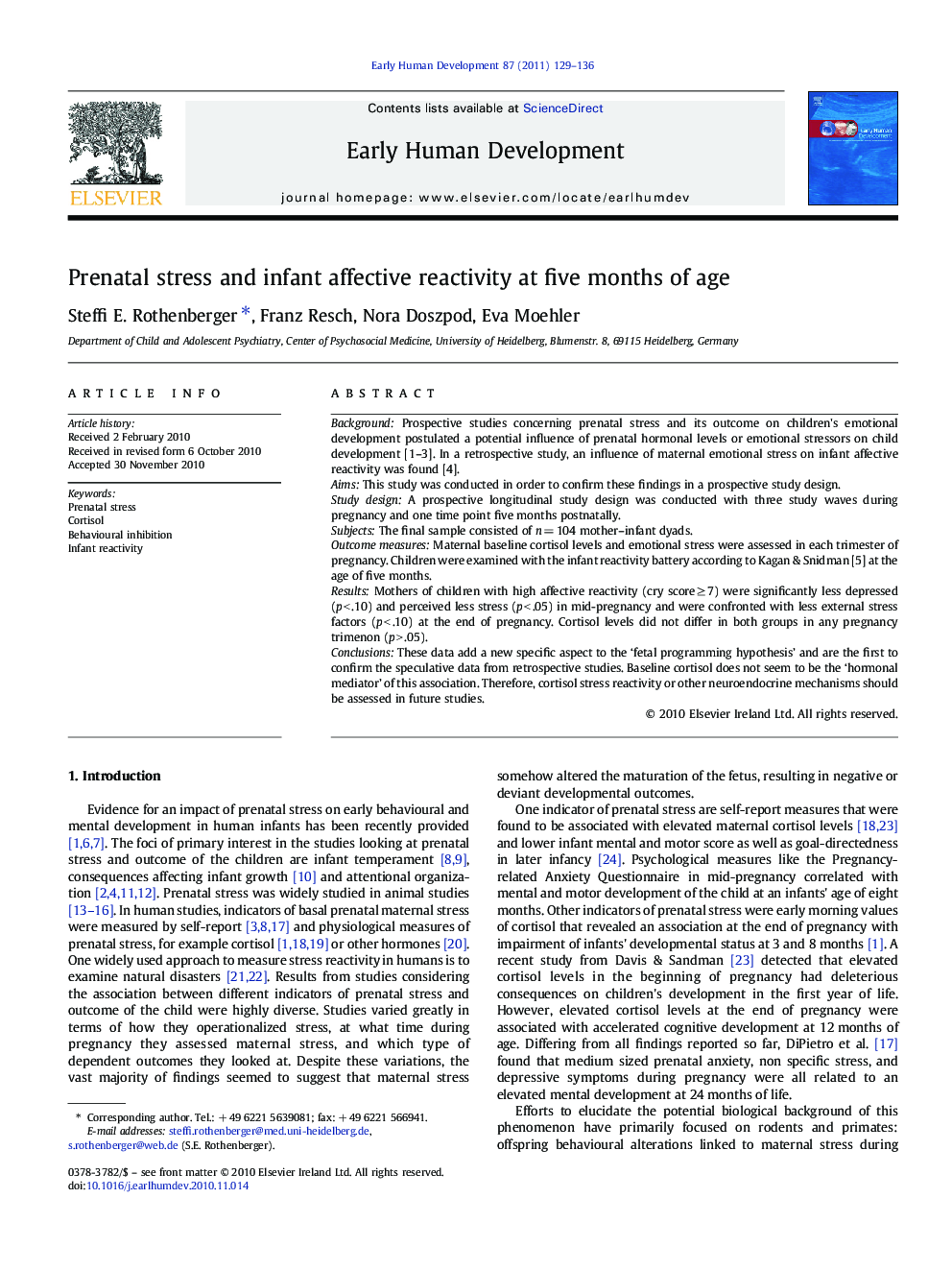| Article ID | Journal | Published Year | Pages | File Type |
|---|---|---|---|---|
| 3917235 | Early Human Development | 2011 | 8 Pages |
BackgroundProspective studies concerning prenatal stress and its outcome on children's emotional development postulated a potential influence of prenatal hormonal levels or emotional stressors on child development [1–3]. In a retrospective study, an influence of maternal emotional stress on infant affective reactivity was found [4].AimsThis study was conducted in order to confirm these findings in a prospective study design.Study designA prospective longitudinal study design was conducted with three study waves during pregnancy and one time point five months postnatally.SubjectsThe final sample consisted of n = 104 mother–infant dyads.Outcome measuresMaternal baseline cortisol levels and emotional stress were assessed in each trimester of pregnancy. Children were examined with the infant reactivity battery according to Kagan & Snidman [5] at the age of five months.ResultsMothers of children with high affective reactivity (cry score ≥ 7) were significantly less depressed (p < .10) and perceived less stress (p < .05) in mid-pregnancy and were confronted with less external stress factors (p < .10) at the end of pregnancy. Cortisol levels did not differ in both groups in any pregnancy trimenon (p > .05).ConclusionsThese data add a new specific aspect to the ‘fetal programming hypothesis’ and are the first to confirm the speculative data from retrospective studies. Baseline cortisol does not seem to be the ‘hormonal mediator’ of this association. Therefore, cortisol stress reactivity or other neuroendocrine mechanisms should be assessed in future studies.
